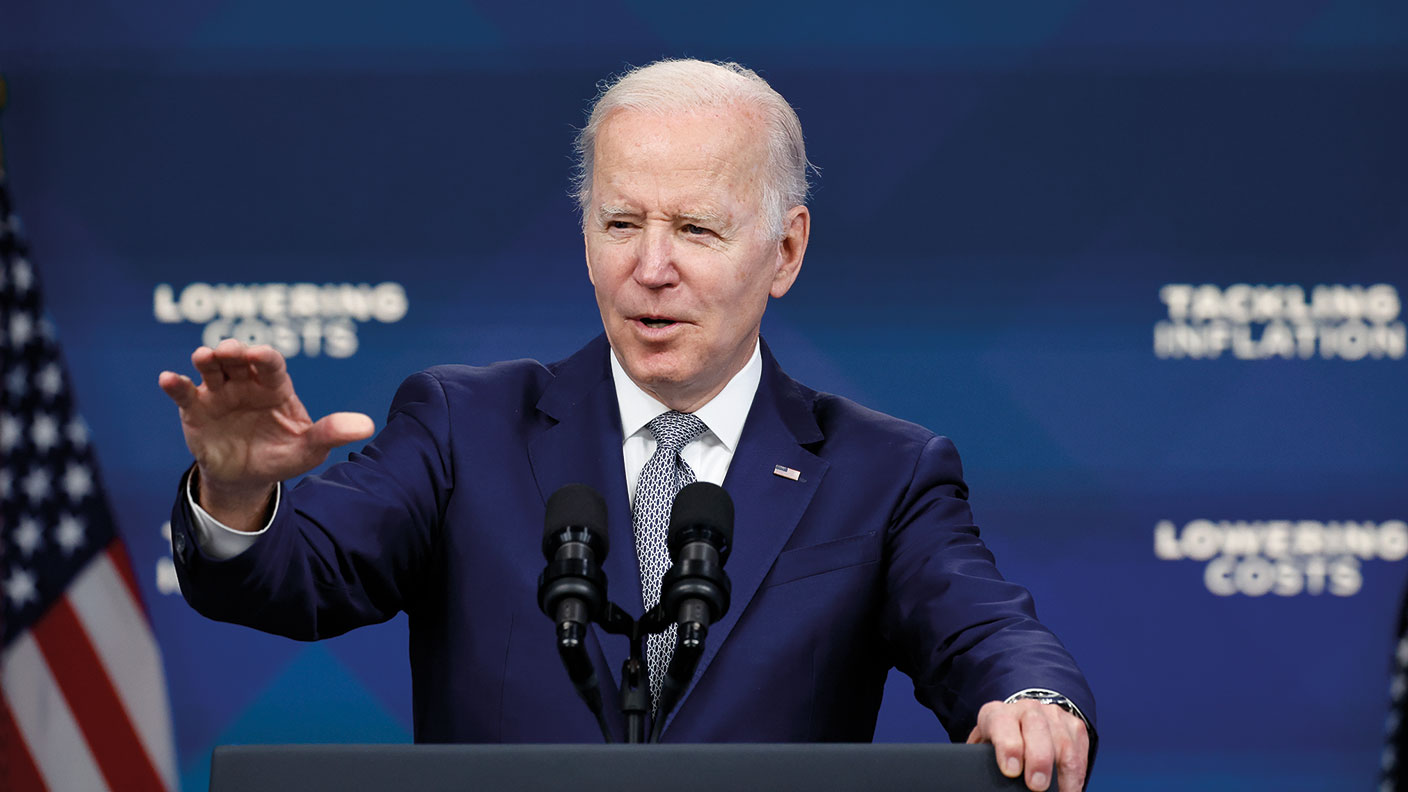Steer clear of US stocks
Conditions are ripe for a US stockmarket crash, says Merryn Somerset Webb. You have been warned.

Get the latest financial news, insights and expert analysis from our award-winning MoneyWeek team, to help you understand what really matters when it comes to your finances.
You are now subscribed
Your newsletter sign-up was successful
Want to add more newsletters?

Twice daily
MoneyWeek
Get the latest financial news, insights and expert analysis from our award-winning MoneyWeek team, to help you understand what really matters when it comes to your finances.

Four times a week
Look After My Bills
Sign up to our free money-saving newsletter, filled with the latest news and expert advice to help you find the best tips and deals for managing your bills. Start saving today!
The most telling headline of the week came in Tuesday's copy of the Financial Times. In May, the value of merger and acquisition (M&A) deals in America came to $243bn. That doesn't sound like a very interesting number (a billion here, a billion there), but it turns into one as soon as you note that it is the highest monthly value on record, and then compare it with similar numbers from the past.
In May 2007, for example, American M&A came to $226bn. And in January 2000, it came to $213bn. Yes the Americans managed to do more deals last month than they did at the peak of the dotcom and credit bubbles.
I was on the receiving end of a not-particularly-polite lecture from the head of one of the UK's big investment firms this week about reporting news in a positive, rather than a negative, light.So I have tried very hard to humour himthis week by finding the good in this news.
MoneyWeek
Subscribe to MoneyWeek today and get your first six magazine issues absolutely FREE

Sign up to Money Morning
Don't miss the latest investment and personal finances news, market analysis, plus money-saving tips with our free twice-daily newsletter
Don't miss the latest investment and personal finances news, market analysis, plus money-saving tips with our free twice-daily newsletter
I have failed. What this news tells me isn't that the American economy is booming. It tells me that, despite the waves of cheap money being chucked at it (the average US firm can borrow in the bond market at about 3%), it isn't booming. If it were, profits at American firms would be rising. They are not. Instead, US stocks have been pushed up and up again by the way in which firms are borrowing and spending on buybacks and then on M&A.
Equity markets, says the head of M&A at JP Morgan, are "rewarding deal-driven expansion" at a time when organic growth is "subdued". This is about weak demand, rubbish profitability and a huge build up in debt levels. I challenge anyone to find the good news in that.
Pessimists might also like to note first that the two previous highs in the deal-making numbers were fast followed by the horrible crashes that went on to scar a generation of investors; and second, that the American market is currently trading on a cyclically adjusted price-to-earnings (p/e) ratio of27 times. The long-term mean is more like16 times and it has only been this high in 1929 and just before the other two crashesI have already mentioned.
What will make it crash again? That is impossible to know. But it also isn't necessary to know. Just as you don't need to know which snowflake will cause an avalanche to avoid an area of heavy snowfall (you just need to know that conditions are ripe for an avalanche), you don't need to know what will trigger a crash to be wary of a market (you only need to know that the conditions are in place for a crash). With that in mind we are still keeping our exposure to the American market as a whole to a minimum and we think you should too.
Get the latest financial news, insights and expert analysis from our award-winning MoneyWeek team, to help you understand what really matters when it comes to your finances.

-
 Ayatollah Ali Khamenei: Iran’s underestimated chief cleric
Ayatollah Ali Khamenei: Iran’s underestimated chief clericAyatollah Ali Khamenei is the Iranian regime’s great survivor portraying himself as a humble religious man while presiding over an international business empire
-
 'AI will change our world in more ways than we can imagine'
'AI will change our world in more ways than we can imagine'Interview Rob Arnott of Research Affiliates talks to Andrew Van Sickle about the AI bubble, the impact of tariffs on inflation and the outlook for gold and China
-
 What to do as the age of cheap money and overpriced equities ends
What to do as the age of cheap money and overpriced equities endsEditor's letter The age of cheap money, overpriced equities and negative interest rates is over. The great bond bull market is over. All this means you will be losing money, says Merryn Somerset Webb. What can you do to protect yourself?
-
 Investors are bullish – but be very careful
Investors are bullish – but be very carefulEditor's letter Many investors are buying the dip, convinced the latest upswing is the start of a new bull market. The odds are that it’s not, says Andrew Van Sickle. The bear has unfinished business.
-
The MoneyWeek approach to investing
Editor's letter At MoneyWeek, our aim is simple: to give you intelligent and enjoyable commentary on the most important financial stories, and tell you how to profit from them. So how do we do that?
-
 Celebrity bitcoin ads echo the subprime mortgage crisis
Celebrity bitcoin ads echo the subprime mortgage crisisEditor's letter A wave of ads featuring celebrities punting crypto to the masses are reminiscent of how low income Americans were encouraged to take on loans they couldn’t afford, says Merryn Somerset Webb.
-
 Will the UK's property slowdown turn into a house-price crash?
Will the UK's property slowdown turn into a house-price crash?Editor's letter As the cost-of-living crisis intensifies and interest rate rise, it is hard to see reasons for UK house prices to keep rising, says Merryn Somerset Webb.
-
 The unintended consequences of ESG investing
The unintended consequences of ESG investingEditor's letter Many people are refusing to invest in energy companies, citing "ESG" concerns. But we still need fossil fuels, says Merryn Somerset Webb, and will for years to come. Boycotting the sector is a bad idea.
-
 What sardines can teach investors about today's markets
What sardines can teach investors about today's marketsEditor's letter A California tale of “eating sardines” and “trading sardines” can help us divide investments into speculative and real, says Merryn Somerset Webb. Something that's very useful when looking at today’s markets.
-
 The market finally seems to be getting it
The market finally seems to be getting itEditor's letter Reality checks are coming fast to the markets, says Merryn Somerset Webb – with even 2022’s safe havens beginning to reflect recession worries.